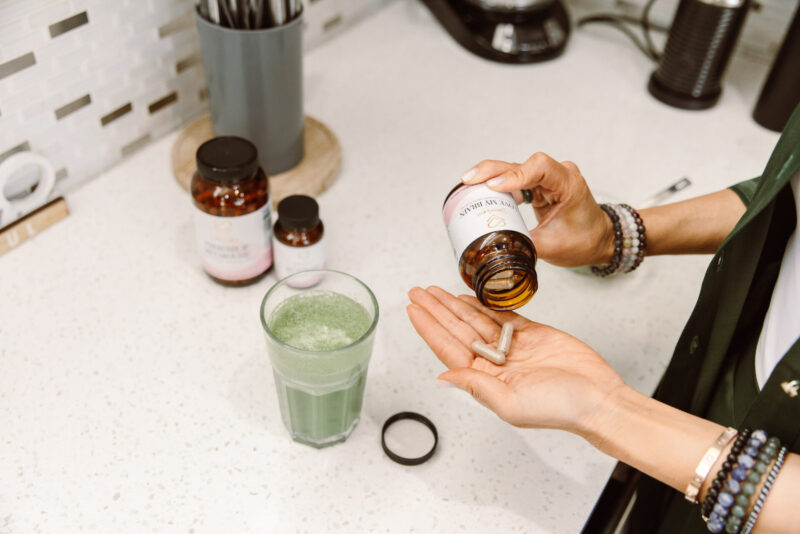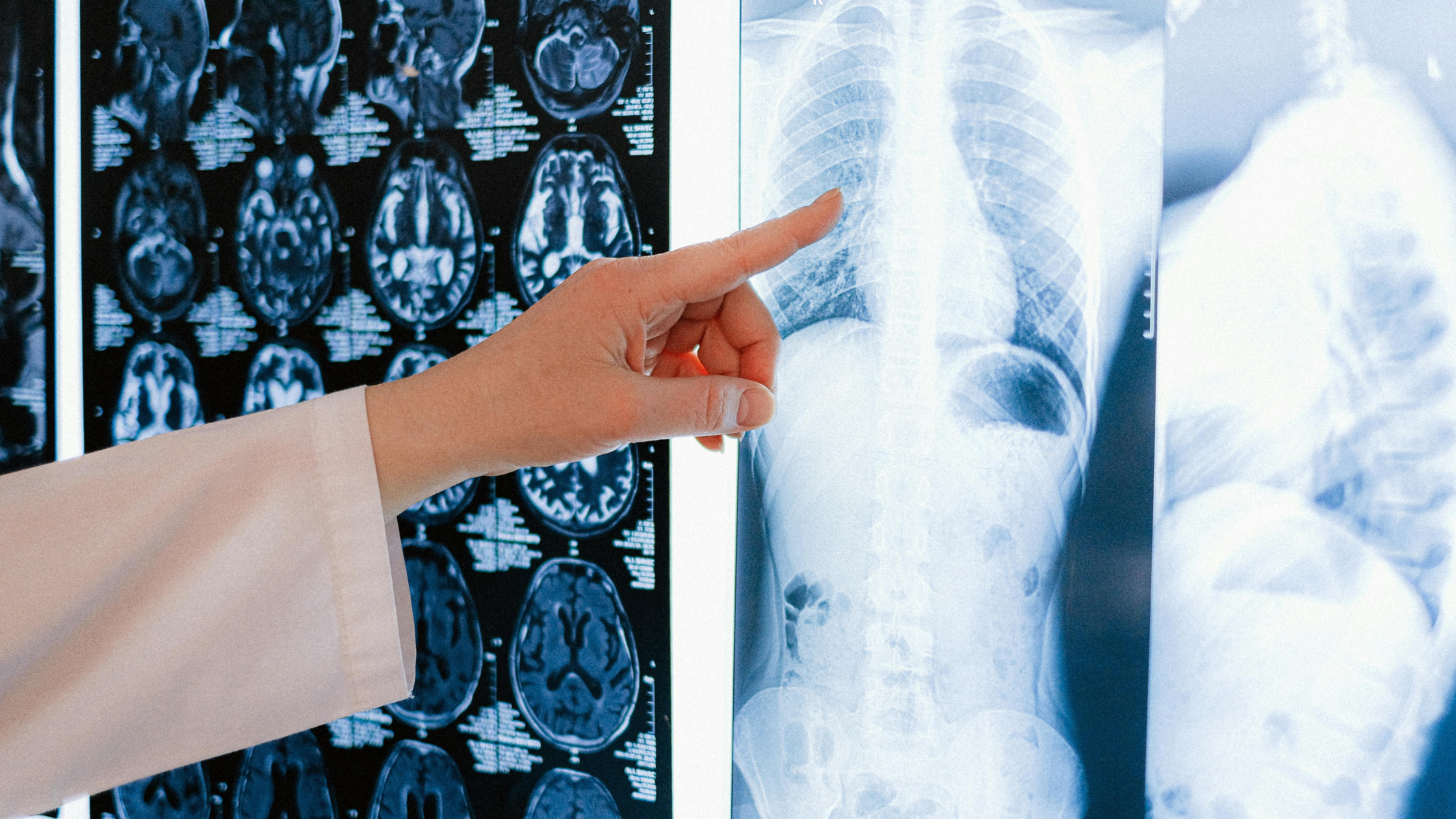No one should have to settle for feeling cranky, irritable, achy or unfocused. However, hormonal imbalances can get in the way of living the beautiful life you deserve! Thankfully, there are ways you can take back control by balancing your hormones.
Here is a comprehensive guide created specifically for achieving female wellness at every age. I’ve laid out essential nutrients along with lifestyle practices, so that no matter your age, you can look forward to optimal health throughout each decade! I hope this information empowers you to reclaim vibrant, holistic well-being through balanced hormones. You can find additional resources and a more detailed program for hormonal balance in the Serena Loves App. Let’s begin with what female sex hormones are and the signs of hormonal imbalances.
FEMALE SEX HORMONES & SIGNS OF IMBALANCES
From puberty, to the reproductive years, to pregnancy, and beyond, there are several hormones important to the female reproductive system. The seven female sex hormones are Estrogen, Progesterone, Testosterone, Human Chorionic Gonadotropin (HcG), Follicle Stimulating Hormone (FSH), Luteinizing Hormone, and Dehydroepiandrosterone Sulfate (DHEA). These hormones play an essential role in regulating the menstrual cycle, maintaining bone density and muscle mass, supporting brain function, managing libido, and influencing mood. Each one of these hormones stimulates different functions and processes, and some are only needed during a particular phase, like pregnancy.
While a woman’s estrogen, progesterone, and other hormone levels will rise and fall naturally throughout her life, there are a range of symptoms and health issues to look out for and promptly treat. For example, chronically high estrogen levels can lead to Hoshimoto’s, endometriosis, fibroids, and even certain types of cancer. Finding the root cause of your hormonal imbalance requires a look at your diet, sleep, stress levels, gut health, medication use, and exposure to endocrine disruptors and environmental toxins. If you are suffering from a hormonal imbalance, compare what you are experiencing to the signs and symptoms below:
- Irregular periods, spotting, or reproductive system disorders such as PCOS
- Infertility, miscarriage, or preterm delivery
- Sleep issues such as insomnia or night sweats
- Fatigue
- Constipation or diarrhea
- Diminished sex drive or low libido
- Weight gain
- Thin skin
- Acne or lesions
- Hair loss or excessive hair growth
- Brain fog or poor cognitive function
- Uterine or breast cancer
- Gallbladder issues
- Mood issues, depression, or anxiety
- Weak immune system
- Early aging and degenerative disease
- Digestive issues
- Low blood pressure or anemia
- Chronic acne
- Bone health issues
- Vaginal dryness
This is an extensive list, and the root cause could be a combination of multiple things. But every effort helps to bring about positive change, and one simple tweak could solve most if not all of your health issues related to hormonal balance. The body works as a system and is meant to heal itself, so don’t feel overwhelmed! Your body is on your side. It is also important to note that balancing hormones involves a comprehensive approach that considers lifestyle factors, medical history, and individual needs.
HORMONAL BALANCE FOR FEMALES AGE 16-26
During your 20s, you’re likely in the prime of your reproductive years, which means that you may be experiencing some hormonal fluctuations.

1. Learn Cyclical Eating:
One of the most important skills to learn when you start having your period is to eat specific nutrients in accordance with your reproductive cycle. Understanding the nuances of this cyclical eating style helps you meet your body’s needs and nourish it in alignment with its phases. It’s essential to focus on nutrient-dense ingredients that support reproductive health like leafy greens, wild-caught fish, and fermented foods. This dietary practice mirrors so much of the natural world and its circadian rhythms. You can learn more about eating and sleeping in tune with your circadian rhythm, here!
2. Eat For A Better Mood:
Women’s mental health holds a well-researched relationship to hormonal shifts and inflammatory cytokines. From anxiety and depression to other mood issues, these changes likely lie at the root of your emotional well-being – underscoring why it’s so important for women in particular to prioritize their holistic wellness. Incorporate magnesium-rich foods like almonds, spinach, and dark chocolate to support your nervous system and prevent mood swings.
3. Balance PMS Symptoms:
Headaches, fatigue, bloating, you name it! The list of PMS symptoms that women experience is seemingly endless. Fortunately, help may come in the form of adaptogenic herbs! Vitex agnus-castus has been shown to improve PMS symptoms. Reducing inflammatory foods and sugar intake in addition to focusing on hydration and a nutrient-dense diet can drastically reduce PMS symptoms as well.
4. Reduce Alcohol Intake:
Alcohol not only contributes to poor mental wellness by affecting cortisol, dopamine, and serotonin levels, it also builds up toxicity, inflammation, and scarring of the liver, while negatively impacting hormonal balance.
HORMONAL BALANCE FOR FEMALES AGE 27-37
As you enter your 30s, you may start to experience new shifts in your hormone levels.

1. Continue A Cyclical Eating Style:
One of the more intuitive answers to finding a diet that nurtures women’s cyclical reproductive systems is to eat cyclically. As a female, your body requires different amounts of nutrients at different times of the month, as well as during different years of your lifespan.
2. Start A Fasting Practice:
Fasting is an important practice for resetting the entire body and maintaining youthful cells and systems. However, there are negative health effects when women attempt to follow, for example, a strict keto diet throughout the entire month. If a female is aggressively in ketosis for a long period of time, she will produce more reverse T3, which increases the risk for being insulin resistant, and can lead to diabetes. Here is an informative guide to starting a fasting practice.
3. Reduce Stress Levels:
Consider adding adaptogenic herbs like ashwagandha or maca to your diet to help support your body’s response to stress. Incorporating stress-relieving practices, such as meditation or yoga, into daily routines can also help with stress management. Additionally, avoiding caffeine and sugar when you are stressed can help mitigate cortisol production, which triggers inflammation and disrupts hormonal balance. Here are six additional tips to help manage stress!
4. Focus On Nutrient-Dense Meals:
Some examples of nutrient-dense foods include berries for reducing inflammation; olive oil for omega-3 fatty acids and phenolic compounds with anti-inflammation healing properties; broccoli for fiber, which helps regulate insulin resistance that is often associated with PCOS; walnuts containing omega-3’s and fiber that helps balance hormones; grapes can provide the antioxidant resveratrol that eases symptoms; avocados supply both anti-inflammatory omega-3’s as well as fiber; ginger aids in hormone balance; vitamin D-rich foods such as mushrooms, fatty fish, and fortified foods help estrogen regulation, reduce harmful inflammation, and may improve mood for women going through menopause. Also worth mentioning, whole grains have a high fiber and low glycemic index, which is especially helpful for fighting damaging inflammation and balancing insulin levels.
HORMONAL BALANCE FOR FEMALES AGE 38-50
From their late 30s and throughout their 40s women typically experience perimenopause, and the associated hormonal fluctuations. Oftentimes, women in their 40s notice thyroid imbalances, adrenal fatigue, and insulin resistance. The following practices may help.

1. Eat Fiber-Rich Foods:
Consuming fiber-rich foods like fruits, vegetables, beans and whole grains helps balance hormone levels and reduce insulin resistance. Incorporating cruciferous vegetables like kale and broccoli, which can help support the liver’s detoxification process, help balance insulin levels and prevent excess estrogen production.
2. Limit Processed Foods:
Reducing consumption of processed foods and improving the quality of daily diet make a difference in overall hormonal balance by reducing bodily inflammation and the onset of issues like leaky gut or insulin resistance.
3. Choose Nutrients for Perimenopause:
Prioritize healthy fats rich in omega-3 fatty acids, like olive oil, walnuts, and seeds, which can help support healthy hormone production and brain health, improve thyroid function, and reduce inflammation. Foods that contain phytoestrogens, such as soy products, flaxseeds, and chickpeas, can help balance estrogen levels and alleviate menopause symptoms. Magnesium-rich foods, such as spinach, almonds, and avocado, are also great for your plate during these years to support adrenal function and reduce stress levels.
4. Reduce Stress & Improve Sleep:
Prioritize sleep, stress-reduction techniques, and exercise to support your mental and physical health. Incorporating herbal supplements such as maca root, black cohosh, and ashwagandha may also help you manage stress levels.
HORMONAL BALANCE FEMALES AGE 51-60
A woman’s reproductive system ages first, showing up through menopause. You want to have the right hormone levels to protect from aging and other health issues like bone loss, epidermal thinning, or increased susceptibility to heart disease.

1. Prioritize Anti-Inflammatory & Anti-Aging Nutrition:
Consuming foods high in omega-3 fatty acids, like fatty fish, flax seeds, or chia seeds, helps reduce inflammation and support hormonal balance. On the other hand, eating processed foods and a mostly “western diet” is linked to hormonal imbalance in postmenopausal women that can lead to cancer. Get a list of my top anti-aging foods, here.
2. Choose Phytoestrogens:
During menopause, women experience a decline in estrogen production, which can lead to a variety of symptoms such as hot flashes, night sweats, and mood changes. Phytoestrogens are plant compounds that have a similar structure to estrogen and can bind to estrogen receptors in the body, helping to regulate estrogen levels. Foods like flaxseeds, soy, and sesame seeds are high in phytoestrogens, which can help balance hormone levels.
3. Fight Osteoporosis:
Calcium and vitamin D supplements help maintain bone health. Vitamin D can be obtained from sun exposure, fortified foods, and supplements. Good sources of calcium include dairy products, leafy greens, tofu, and almonds.
4. Consider Adding Probiotics
to your routine to support digestive health. Probiotics help support digestive health and reduce the risk of vaginal infections that can occur during menopause. The best way to diversify your microbiome for improved health is to aim for 30 plant-based foods per day. Considering the link between gut health and estrogen production, it is important to prioritize gut health. Good sources of probiotics include fermented foods like coconut yogurt, kefir, and kimchi.
5. Consume Vitamins & Minerals:
Magnesium from a high-quality supplement like Love My Mag, or whole foods such as leafy greens, nuts, seeds, and whole grains can help mitigate symptoms like anxiety, irritability, and insomnia. Vitamin E is an antioxidant that can help reduce hot flashes and night sweats. B vitamins can help with stress management and improved mood. My supplement, Energize & Metabolize contains a selection of important B vitamins, but I highly suggest getting plenty from leafy greens and legumes. Omega-3 fatty acids can help reduce inflammation and improve mood. Also, consider phytoestrogens to help balance estrogen levels and alleviate symptoms of menopause via soy products, flaxseeds, and chickpeas.
6. Exercise:
Strength training helps prevent the loss of muscle mass and also helps increase bone density. In this stage, it is very important to incorporate a regular strength training regimen. Staying active can help you maintain a healthy weight to balance hormones, lower the risk of cancer, promote brain health, and more!
HORMONAL BALANCE FOR FEMALES AGE 61-75
As you enter your senior years, it’s important to continue focusing on nutrient-dense foods and exercise to support healthy aging.

1. Eat For Healthy Aging:
Incorporate foods that are high in antioxidants like berries, dark chocolate, and green tea, which can help protect against free radical damage and promote healthy brain function. Additionally, prioritize lean protein sources like fish and legumes, which can help support muscle mass and prevent age-related muscle loss. Consider adding supplements like coenzyme Q10 or resveratrol to your routine to support heart health and healthy aging.
2. Stay Active:
Being active and getting regular exercise supports overall hormone balance, bone health and mood improvement. There are many different forms of healthy movement for increased longevity. Here are some of my favorites!
3. Choose Community:
Staying connected to a community during your retirement years helps with social and emotional health. You can learn more about this concept in the Serena Loves blog, found here.
SUPPLEMENTS FOR HORMONAL BALANCE
Most of the baseline nutrients the body needs can be found in a balanced diet that is full of vegetables, fruits, whole grains, and high-quality proteins. However, multivitamins can support certain demographics, such as pregnant women, the elderly or people who have a condition that affects nutrient absorption. Sometimes people also find that they are deficient in certain nutrients or that they want to further optimize their well-being with a custom blend.

I recommend choosing vitamins that are made:
- with high-quality ingredients
- in factories that are audited by third parties, such as those with the NSF GMP certification
- by a team of licensed medical professionals, nutritionists and/or scientists
- without GMOs and common allergens (e.g. soy and dairy)
- without fillers
- by a company that operates with integrity
- with bioavailability in mind – some formats are more bioavailable than others (e.g. gummies are known to be less reliable in terms of nutrient content). Additionally, some nutrients work together to increase nutrient absorption in the body.
I’ve created a line of custom nutrient blends from high-quality ingredients that support optimal well-being. Supplements by Serena Loves that may be beneficial for balancing your hormones include Energize & Metabolize, Love My Adrenals, Peace of Mind, and Love My Mag. Learn more about the benefits of each by visiting our shop! Please note, it’s always important to check with your health care practitioner about your specific circumstances before starting a supplement program.
by





